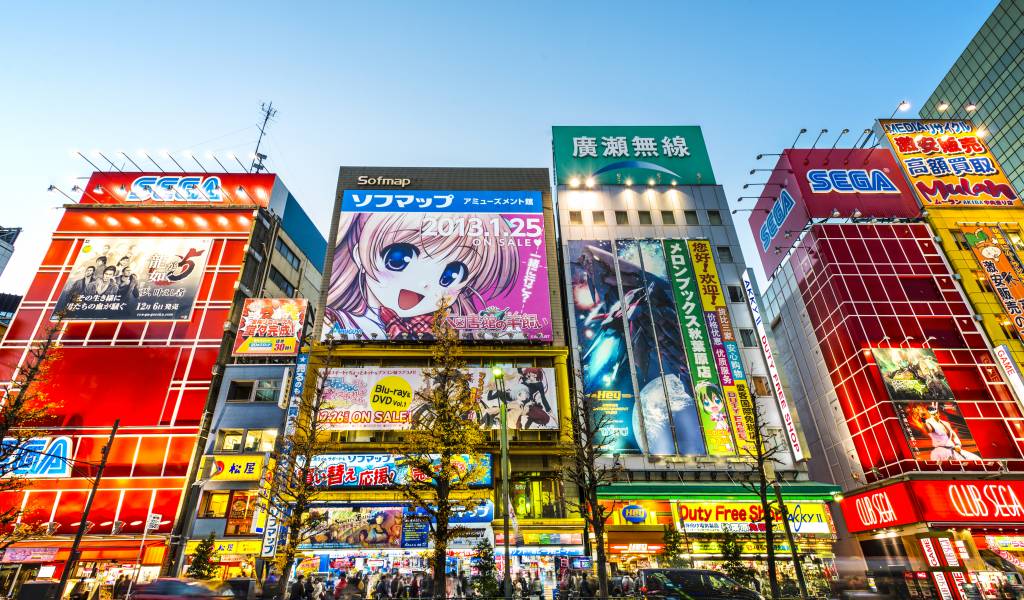For many years, the Japanese videogame industry has been at the forefront of gaming, producing some of the most influential and iconic video games in the world. From classic titles like Super Mario Bros. and The Legend of Zelda to modern masterpieces like Persona 5 and Final Fantasy VII Remake, Japanese game developers have left an indelible mark on the gaming landscape. In this article, we will explore the role of the Japanese videogame industry and examine the impact it has had on gaming as a whole.
Innovation, Creativity & Attention To Detail

One of the reasons why the Japanese videogame industry has been so successful is its focus on innovation and creativity. Japanese game developers are known for their willingness to take risks and push boundaries, creating games that are unlike anything else on the market. This is evident in the variety of game genres that have come out of Japan. From role-playing games (RPGs) like Final Fantasy and Dragon Quest to fighting games like Street Fighter and Tekken, Japanese developers have shown a remarkable ability to create games that are both unique and captivating.
The importance of creativity and innovation can also be seen in the design of Japanese video games. From the colorful and whimsical worlds of Super Mario Bros. and Kirby to the dark and brooding landscapes of Bloodborne and Dark Souls, Japanese game developers have a knack for creating immersive and memorable game worlds that keep players coming back for more.
Another hallmark of the Japanese videogame industry is its attention to detail. Japanese developers are known for their meticulous attention to even the smallest details, from the intricate level design to the carefully crafted characters. This attention to detail is evident in titles like The Legend of Zelda: Breath of the Wild, which features a vast and open world that is full of hidden secrets and surprises. The game’s intricate physics system, which allows players to interact with the environment in a variety of ways, is a testament to the level of care and attention that went into its development.

Likewise, games like Persona 5 and Yakuza: Like a Dragon feature complex and well-written storylines that are filled with engaging characters and memorable moments. The attention to detail in these games is evident in everything from the dialogue to the character animations, making them a joy to play and experience.
Cultural Influence & Industry Challenges
The Japanese videogame industry has also had a significant cultural influence, both within Japan and around the world. Japanese games are known for their unique style and aesthetic, which has helped to shape the way that games are designed and marketed. This can be seen in everything from the design of game characters to the marketing campaigns that are used to promote Japanese games. Characters like Mario and Pikachu have become cultural icons, recognized around the world as symbols of the Japanese videogame industry.
The influence of Japanese games can also be seen in other forms of media. Japanese games have inspired everything from anime and manga to Hollywood films and TV shows. This cross-cultural influence has helped to make Japanese games a global phenomenon enjoyed by millions of players around the world.

Despite its many successes, the Japanese videogame industry has faced its fair share of challenges over the years. One of the biggest challenges facing the industry is the rise of mobile gaming and free-to-play games. Mobile games have become increasingly popular in recent years, with many players preferring the convenience and accessibility of playing games on their phones or tablets. This has had a significant impact on the Japanese videogame industry, which has traditionally focused on console and PC gaming.
The Takeaway
In conclusion, the Japanese videogame industry has had a profound impact on gaming as a whole. Through their focus on innovation and creativity, attention to detail, and cultural influence, Japanese game developers have left an indelible influence on the gaming geography. Their games have inspired countless players around the world and have helped to shape the way that games are designed and marketed. While the enterprise has faced its fair share of challenges, it has remained resilient, adapting to changes in the gaming landscape and continuing to produce some of the most influential and iconic video games in the world.

As we move forward into the future, it is clear that the Japanese videogame industry will continue to play a crucial role in gaming. With its passion for innovation and creativity, its meticulous attention to detail, and its unique style and aesthetic, the Japanese videogame industry will continue to inspire and captivate players around the world, shaping the future of gaming for years to come.










